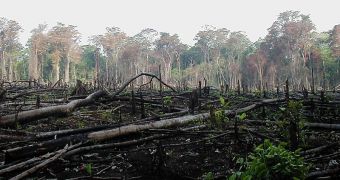Experts rely on numerical indicators to reveal the most important environmental changes recorded since 1992. They bring into discussion the role of 7 billion people in accelerating the climate change process by 2°C of warming, while putting in danger 13 million hectares of land every year.
These numbers reflect a continued harmful human intervention upon the environment, that generated several negative consequences during the last 20 years, reports Our World 2.0.
A new report issued by United Nations Environment Programme’s (UNEP) succeeds in pointing out the right path to a more sustainable conduct, telling “ the story of where the world was 20 years ago and where we collectively stand today, and to show the direction in which we need to move in a post-Rio+20 world.”
According to Our World 2.0, numbers keep surprising the public opinion. Experts state that the total amount of CO2 emissions grew by 36%, while the oceans' temperatures increased their value by 0.28°C, within the last two decades.
The report reveals that the Internet, online commerce, expanded traveling and transportation are all factors that contributed a great deal to such alarming environmental changes. Our development was made at the environment's expense, as this list of advantages actually poses serious threats to human health and safety.
While trying to cope with the increased food demand, global population cleared up large surfaces of woodland, overall as big as Argentina.
Crops try to feed the hungry inhabitants, but the environment pays a huge price for this action, as experts established that the globe's forest areas declined by 300 million hectares since 1990.
As we speak, numbers draw out a mostly unpleasant picture. Of course, we recorded far less major oil spills than we used to, twenty years ago. Our society succeeded in empowering women, since their number in national parliaments grew by 60% since 1997.
We also improved our recycling and composting strategies, greening up our behavior yet currently, scientists have to join forces with governments in order to tackle a large list of threats that includes climate change, ocean acidification and biodiversity loss.

 14 DAY TRIAL //
14 DAY TRIAL //